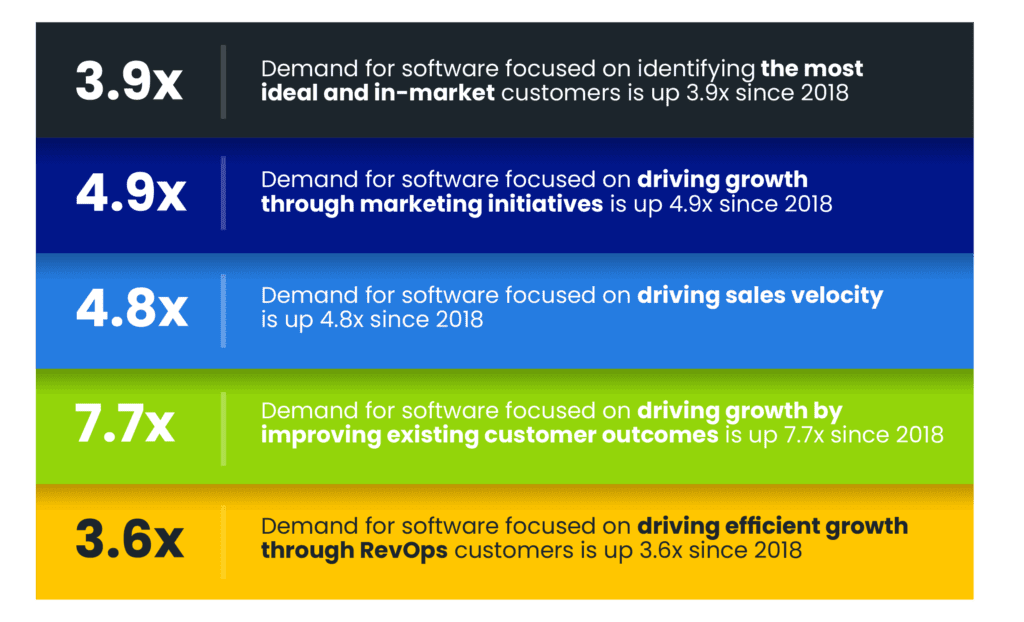Filters
Content Type
Topic
How to Do B2B Keyword Research That Brings Leads
You plan your B2B marketing content carefully to add value to the lives of your clients, inform customers about new or upgraded products, and direct prospects to your sales teams to close the deals. But does your B2B marketing content generate leads with a coherent strategy based on strong B2B keyword research?
According to Baclinko, 99% of clicks are on the first page of search engine results. The top 3 results by themselves see more than 50% combined clicks.
All of this means that your B2B keywords are extremely important to your organic search results.
Today’s guide will give you a brief overview of keywords, how they apply to B2B customers, and some actionable tips on how to choose the right keyword for your content strategy.

What is a B2B Keyword?
When we refer to keywords, we’re talking about the language you focus on when creating and marketing your content. Your favored keywords should appear in multiple diverse places on your website.
B2B keywords are unique because B2B clients use different languages and have a different philosophy compared to B2C clients.
A B2C client has the license to be compulsive. They don’t need to consider as many variables before making a purchase decision. This psychological mindset is radically different from a B2B buyer, who has to balance the needs of the entire company against their personal preferences.
All of this means that B2B buyers will be more thorough in their research. Their use of keywords will be savvier, and they’ll have spent enough time sorting through lots of content to know what’s useful to their research and what isn’t.
The B2B content marketer’s job is to anticipate what their ideal client is going to be searching for, so the right content is ready to go when the buyer needs it.
How Do You Do B2B Keyword Research?
There are a few methods for finding great B2B keywords. If you’ve never done it before, it might help to take a look at some of the internet’s most popular B2B keywords, for example, this list put together by Mondovo.
Before you start creating content based on the world’s highest performing keywords, keep in mind that ranking for these keywords will be very challenging, if not impossible, regardless of the quality of your content. The simple fact is that the higher a keyword ranks, the more likely it is that someone has already produced the content you would like to make for that subject.
Instead, go through the list for an example of the kind of language and questions that B2B clients are asking.
Put Yourself in the Buyer’s Shoes
Try putting on your client hat for a moment and research as though you had no idea your company existed. Take on the persona of one of your ideal clients. This can be a real buyer or a fictional one that checks all your boxes. The important thing is that you’re becoming your own ideal customer to determine what information they want and how best to deliver it to them.
What kinds of questions would you be asking yourself? Keep in mind that these questions and concerns will change as you get further in the process. Your initial question may be so broad that it immediately spawns several smaller and more specific questions. This is the crux of keyword research: unfolding a broader topic until you find a question that hasn’t been answered well.
Use Automated Tools
Once you get a long list of possible keywords, we recommend you use some online tools to find even better keywords that you can rank for quickly.
- Semrush and Spyfu are domain search tools that allow you to input a URL and explore that site’s keyword ranking information. This is extremely useful for analyzing competitors’ keyword usage as well as identifying possible ranking opportunities.
- Semrush also offers a keyword gap tool that helps you compare your keyword usage to your competitors.
- Keyword Hero is another online tool that helps you understand what keywords are leading customers to your content.
Is SEO Effective for B2B?
SEO techniques are based on the marketing community’s understanding of search engine algorithms. Their usefulness doesn’t depend on the subject being searched for. Since most research by B2B clients will be done using the internet and various search engines, applying SEO keyword philosophy to your content is the best way to increase organic search engine traffic.
If a customer is searching for a keyword that you’ve already written 10 blogs about, Google will see your website as more authoritative and comprehensive and rank your website higher as a result.
Focusing on certain keywords is a way to optimize your search engine rankings. SEO and SERP (search engine result pages) are seen by customers as organic and trustworthy. Your appearance high on the SERP will instantly build credibility for your brand.
What to Consider When Doing B2B Keyword Research for SEO
Knowing how to do the research is one thing, but how do you know you’ve found a promising keyword that could be the basis of a single piece of content? What about a keyword that your entire brand is built around?
The most important question when it comes to selecting keywords is how challenging it will be to rank for them.
Naturally, being at the top of the list for a search term with a five-figure monthly search volume is a home run. You’ll be swimming in clicks and the quality of your content will carry the day from there.
However, this is much easier said than done. Reaching the top of any keyword search result requires consistent quality content and authority that is generally built up for months or even years.
Instead of shooting right for the top, you should select keywords based on the following criteria:
Client Feedback
A great way to build a list of potential keywords is to get in touch with some of your important clients and ask them what kind of research they’re doing regularly. This is an extremely valuable insight that should apply to much more than just your keyword strategy.
Your Own Sales and Marketing Teams
Your own sales and marketing team will have important insights that you should farm for keyword ideas. They’ll have their own perspective on what kinds of information they wish was publicly available, as well as what kinds of feedback they get from clients and prospects.
Your Own Content
Use one of the automated tools above to analyze your own content as it currently exists.
What keywords are showing up regularly? How does your brand’s existing language rank on SERPs? Is there a coherent philosophy that you should add to? Or will you need to create an overarching keyword strategy from scratch?
Competitor’s Content
You should use the same tools to take a look at some of your competitors. This will give you a range of insights like how well you rank compared to them, as well as where the gaps in their content exist that you might fill.
Choose a Strategy for Long-Term Growth
There is no shortcut to the top. 94% of Google searchers immediately scroll past SERP advertisements.
If you want to rank in one of the coveted top three spots, which account for 68% of all SERP click-throughs, you’ll need time and dedication to crafting high-quality content that users engage with. You’ll need to accomplish this with an eye on the ever-changing keyword landscape.
Ideally, you’ll flesh out a list of frequent keywords that are highly relevant to your business and customers. Over time, with consistency and dedication, your odds of reaching the top will increase.
Check out Hushly’s Efficient Growth at Scale eBook for more tips on finding the right B2B keywords.
The post How to Do B2B Keyword Research That Brings Leads appeared first on Hushly.



